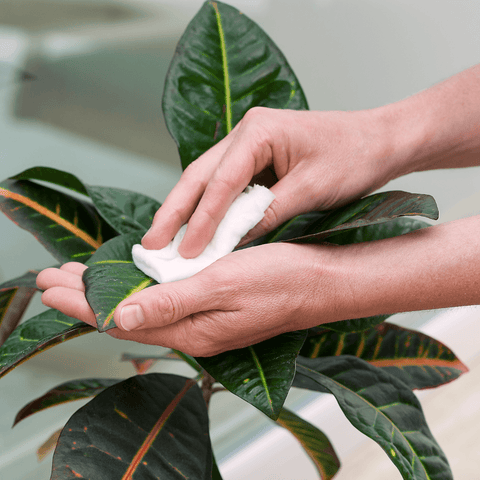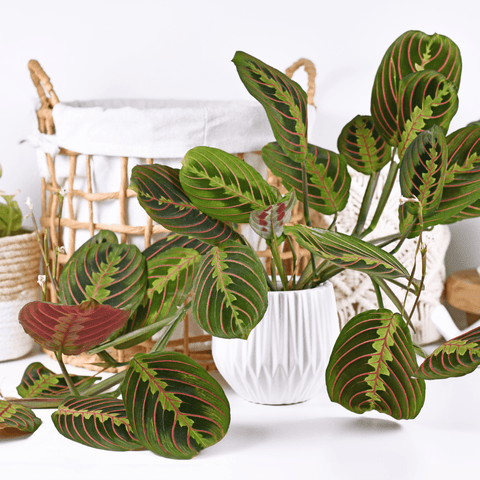If you’ve been thinking of ways to give your houseplants the nutrients they need to flourish, you’re in the right place. In this article, we’ll discuss the benefits of fertilizing your houseplants, some common fertilizers for plants, and tips on how to apply them.
Using fertilizer for houseplants is one of the best and easiest ways to ensure they get the nutrition they need to thrive. Not only will fertilizer provide your plants with the nutrients they need to grow, but it will also help to promote lush foliage and vibrant blooms. Read on to learn more about the benefits of fertilizing your houseplants and the different fertilizers available.
Choosing the Right Fertilizer for Your Houseplants
Houseplants can thrive with the right combination of sunshine, water, and fertilizer. Selecting the right fertilizer for your houseplant is integral to your plant's care.
When selecting a fertilizer, consider the plant's needs. Many houseplants prefer nitrogen-rich fertilizers. Consider the specific type of plant and its environment to determine the best fertilizer for your needs. Fertilizers are typically labeled according to their nitrogen-phosphorus-potassium (N-P-K) ratio. Nitrogen promotes green foliage, phosphorus helps with flowering and root growth, and potassium assists with overall health. Look for a fertilizer that contains both fast and slow-release nutrients to provide a steady source of nutrition for your plant.
If you are unsure which fertilizer to select, consider a balanced all-purpose fertilizer. This type of fertilizer has an even N-P-K ratio and can be used for most houseplants. Please read the directions on the fertilizer's label to ascertain when and how to apply it.
If you are growing a specific type of houseplant, like orchids, consider a fertilizer specifically designed for that species. For example, orchid fertilizers are usually very low in nitrogen, as these plants prefer lower-nitrogen soil. In addition, orchid fertilizers often include micronutrients that help with the health and flowering of the plant.
Regardless of the type of fertilizer you select, it is best to use it sparingly. Many fertilizers contain salts that can burn plants if used in excess. Apply fertilizer according to the manufacturer's recommended dosage, and remember that a little goes a long way.
The right fertilizer for your houseplant is vital to its health and growth. Selecting the right fertilizer and following the manufacturer's instructions can help your houseplants stay healthy and vibrant.
Benefits of Fertilizing
When it comes to plant care, fertilizing is an essential step to maintain the health of your houseplants. Fertilizing provides your houseplants with essential nutrients that help promote vigorous growth, colorful blooms, and lush leaves. In addition, fertilizer provides your houseplants with nourishment that is unavailable from your regular watering schedule.
Regular fertilizing also helps enrich the soil in your pots with vital minerals and nutrients. In addition, it can help improve soil drainage and aeration, allowing roots to grow more efficiently and healthily. Fertilizer also helps to maintain the pH levels of soil, providing the right environment for your plants to flourish.
When fertilizing houseplants, it is important to use the right type of fertilizer for each type of plant. Different fertilizers are geared to provide the best mix of nutrients to each type of plant. Also, each fertilizer has a different guaranteed analysis of nutrients, which will help you choose the right fertilizer for each plant.
In general, most houseplants can benefit from a balanced, slow-release fertilizer. Slow-release fertilizers are designed to release nutrients over an extended period, providing a steady supply of nutrients for your plants instead of a big dose all at once. This can help protect your plants from burning from receiving too much fertilizer in one application. Additionally, slow-release fertilizers can help your houseplants develop a deeper and healthier root system since it takes longer for the fertilizer to reach the root zone.
Overall, fertilizing your houseplants can provide your plants with essential nutrients that help promote healthy growth and well-being. When selecting a fertilizer, make sure that it is the best suitable for each type of plant and is slow-release to protect your plants from burning and over-fertilizing.
Common Houseplant Fertilizers
Regarding plant care, Houseplants need the right balance of nutrients to remain healthy. Fertilizer is one way to ensure that your Houseplants receive the proper nutrition and can help with overall health and growth. This section will explore the different types of Houseplant fertilizers and how to use them for optimal plant care.
Organic Fertilizers: Organic fertilizers may come in many forms, including compost, animal manure, and fish emulsion. These organic fertilizers will provide nutrients to Houseplants slowly over time, helping to promote healthy growth. However, organic fertilizers often contain lower levels of essential nutrients than inorganic fertilizers, so it may be necessary to supplement them with basic elements.
Inorganic Fertilizers: Inorganic fertilizers are usually made of synthetic materials and are made to provide essential nutrients in larger quantities than organic fertilizers. They also tend to last longer in the soil, meaning that Houseplants will benefit from a single fertilizer application over an extended period. However, inorganic fertilizers must be used properly, as over-application can harm plants.
Liquid Fertilizers: Liquid fertilizers are easy to use and promptly provide Houseplants with the essential nutrients they need. These solutions can be applied to the soil or leaves and are often tailored to specific types of plants. However, remember to follow the instructions on the package, as too much fertilizer can be harmful.
Fertilizer Sticks: Fertilizer sticks are an easy way to give houseplants essential nutrients. Insert the sticks into the soil, and the fertilizer will dissolve over time. However, it’s necessary to follow the package instructions and not over-apply fertilizer sticks.
No matter what type of fertilizer you choose, proper application is critical to providing your Houseplants with the nutrition they need. Be sure to read the instructions on the package carefully and always follow the recommended application rates. Proper fertilization will help to ensure that your Houseplants remain healthy and happy.
Fish Emulsion
This is one of the most nutrient-rich fertilizers available and can significantly nourish houseplants. Fish Emulsion is a natural and organic fertilizer created when fish parts are processed with water and converted into liquid. It contains a high nitrogen, phosphorus, and potassium concentration, all essential nutrients for proper plant care. In addition, Fish Emulsion also contains a variety of micronutrients that can help to encourage healthy growth and blooming in houseplants. When used in moderation, Fish Emulsion can be a beneficial fertilizer for houseplants.
Bone Meal
Bone meal is an excellent source of slow-release phosphorus. Phosphorus is essential for plant care and encourages strong root growth and abundant flowering. Though not as widely available as synthetic fertilizers, bone meal is gaining popularity among houseplant enthusiasts who prefer organic plant care methods. It is typically used as a top-dress fertilizer or can be mixed into the soil when planting. However, follow package instructions; a bone meal can burn your houseplants if misused.
Kelp Meal
Kelp meal Is an excellent source of plant care for Houseplants. Kelp meal is made from seaweed and contains a high amount of micronutrients. When used as a fertilizer, it can boost nitrogen and phosphorus, which will help your Houseplants to thrive. It can be found at most garden centers and is easy to apply, making it a good choice for Houseplant owners. When using Kelp Meal, following the directions carefully and applying them according to your Houseplant’s needs is essential.
Compost Tea
It is a popular choice among plant care enthusiasts regarding healthy houseplants with fertilizer. Compost tea is a liquid fertilizer made by steeping aged compost in water. This liquid can easily be poured around the houseplants' base or sprayed directly onto their leaves. Because compost tea is full of beneficial bacteria and microorganisms, it can help promote vigorous root growth, leading to healthier and more vibrant houseplants. When using compost tea, dilute the solution before pouring it onto the soil or spraying it onto the leaves of your houseplants.
Conclusion
Overall, it is clear why it is essential to nourish houseplants with fertilizer. Fertilizers can help plants to grow and stay healthy. Many fertilizers are available, such as fish emulsion, bone meal, kelp meal, and compost tea, each with unique benefits and uses. When fertilizing houseplants, it is essential to consider the type of fertilizer and the dosage to get the best results. Taking the time to care for houseplants properly is an investment that will reap the rewards in the long run, as healthy plants bring beauty and joy to a home.





Comments (0)
There are no comments for this article. Be the first one to leave a message!